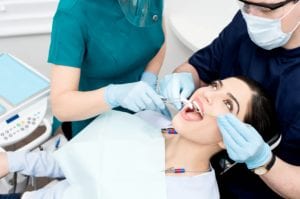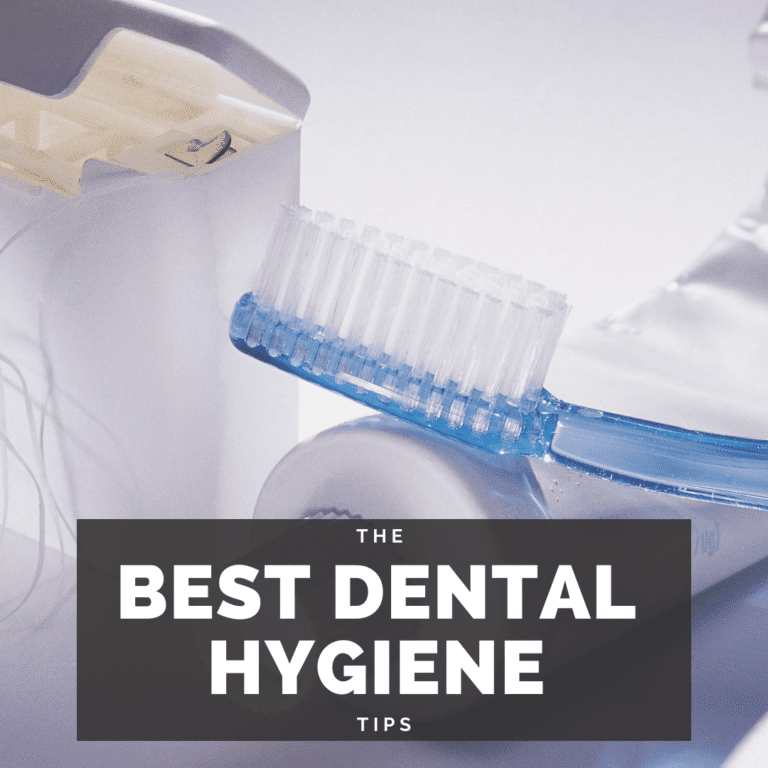When was the last time you evaluated your dental hygiene habits? Chances are, other than brushing and maybe flossing, you probably haven’t thought about your dental hygiene since the last time you went to the dentist. However during the month of October, the American Dental Hygienist Association (ADHA) wants to make sure that you pay attention to your dental hygiene. In 2009, the ADHA established October as National Dental Hygiene Month as a way of promoting awareness and education about proper dental hygiene.
For starters, the ADHA wants everyone to realize just how important dental hygiene is to your oral health. Proper dental hygiene practices can significantly decrease the risk of dental issues like tooth decay and gum disease, while a lack of oral hygiene can increase the risk of developing these problems. This is due to the fact that the goal of dental hygiene is to remove the excess plaque, which houses the bacteria that cause both tooth decay and gum disease. Ultimately, the difference between a healthy and an unhealthy smile is how much plaque and bacteria reside on or around the teeth and gums.
Now that you understand the importance of dental hygiene, another part of National Dental Hygiene Month is to educate the public on how to practice proper dental hygiene. Here are some of the best dental hygiene tips you should follow:
Brush and Floss Daily
Proper dental hygiene starts with a basic daily routine of brushing twice a day and flossing once a day. Ideally, one of your daily brushings should be just before you go to bed. It is also recommended to floss at this time, just before you brush your teeth.

Drink Water
Drinking water has a number of overall health benefits, but it can also improve your dental hygiene. It is especially beneficial to drink water after eating because this rinses food debris from your mouth and helps decrease the negative effects of acidic foods. Drinking enough water throughout the day also means that your body will produce enough saliva to naturally clean your mouth.
Use Mouthwash
Although you may think you don’t need mouthwash, it has been shown to improve dental hygiene by reaching into areas missed by toothbrushes and floss. Some types of mouthwash are also formulated to make it harder for plaque and tartar to accumulate on tooth enamel. Overall, mouthwash is a great supplemental practice to add to improve your dental hygiene.
Eat More Vegetables
Like drinking water, eating healthy also offers a number of overall health benefits. When it comes to your dental hygiene, eating more crunchy vegetables reduces the amount of plaque that accumulates on your teeth. Also, there are other foods that are good for your teeth to snack on.
Reduce Sugar Intake
While you will want to increase your consumption of water and crunchy vegetables, you can also improve your dental hygiene by limiting the amount of sugar you consume in foods and beverages. Sugar is the primary food source of bacteria that is converted into acids that erode your enamel and cavities. Reducing your sugar intake helps to keep bacteria populations under control and decreases the risk of developing cavities.
Don’t Forget to Visit Your Dentist

Even with all these great dental hygiene tips, it is still necessary to visit your dentist at least twice a year for a dental cleaning. In some cases, your dentist may recommend more frequent cleanings to maintain your oral health. These dental cleanings are extremely important because they remove plaque and tartar (hardened plaque) from the entire surface of your teeth. Oftentimes, even people with good daily dental hygiene habits still have places they miss. Luckily, dental cleanings are designed to clean these areas to maintain your oral health.



